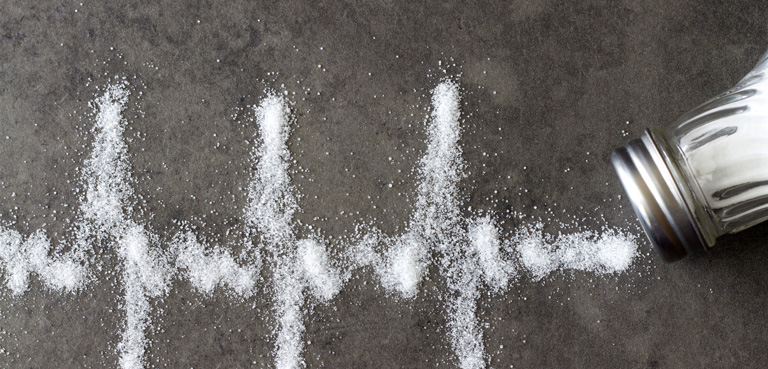Sodium is a naturally occurring mineral found in salt. And while sodium is essential for several functions in our body, most of us eat too much of it on a regular basis. Dr. Sudha Jaganathan, a Cardiologist specializing in heart failure at the Florence Wormald Heart and Vascular Institute at St. Elizabeth, explains how excess sodium affects our bodies and how to decrease it from your diet.
What Sodium Does in the Body
Sodium is necessary for our bodies to function. “It helps our bodies hold onto water,” explains Dr. Jaganathan. “This creates volume, and our blood vessels need volume.” Because the body is comprised of about 60% water, we need to retain some degree of water so it will function appropriately. Sodium also helps the cells in our bodies work efficiently. It also plays a key role in normal nerve and muscle function.
Maintaining a healthy balance of fluid and sodium in our bodies is necessary for the health of the heart, liver and kidneys.
How Sodium Affects the Heart
When we consume too much sodium, our bodies retain excess water. When this happens, the heart pumps blood faster which increases blood pressure. This can damage blood vessels and raise the risk for heart attack and stroke.
“When the blood pressure goes up, that’s more pressure that our heart has to work against,” says Dr. Jaganathan. “High blood pressure also causes damage to blood vessels, which can lead to other vascular disorders.”
High Blood Pressure Complications
Uncontrolled high blood pressure – or hypertension – can also increase your risk of:
- Heart attack
- Heart failure
- Kidney damage
- Sexual dysfunction
- Stroke
- Vision problems
Ways to Reduce Your Sodium Intake
Chances are that even if you never lift a saltshaker, you’re probably consuming more sodium than you should. Here are some things you can do to help manage your sodium intake:
- Read nutrition labels: Some foods may not taste salty, but they can still be high in sodium, look for the sodium content on the nutrition labels to choose foods lower in sodium.
- Avoid fast foods: Most sodium comes from processed, packaged foods or restaurants – not from meals prepared at home.
- Skip deli and cured meats: These are some of the top sodium food sources.
- Limit bottled dressings, sauces and condiments: These are big culprits for hidden sodium.
- Skip the added salt: Experiment with spices, fresh herbs or sodium-free seasonings.
Get the Care You Need
If you have questions or concerns about your sodium intake or other dietary needs, talk to your primary care provider.

